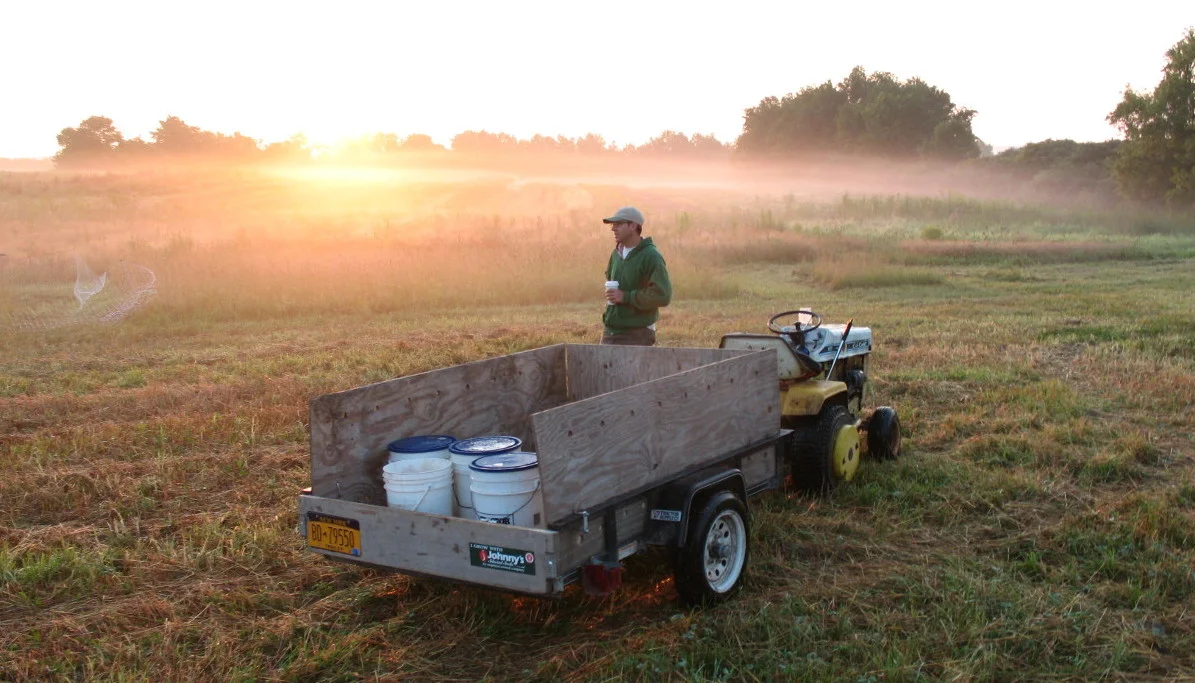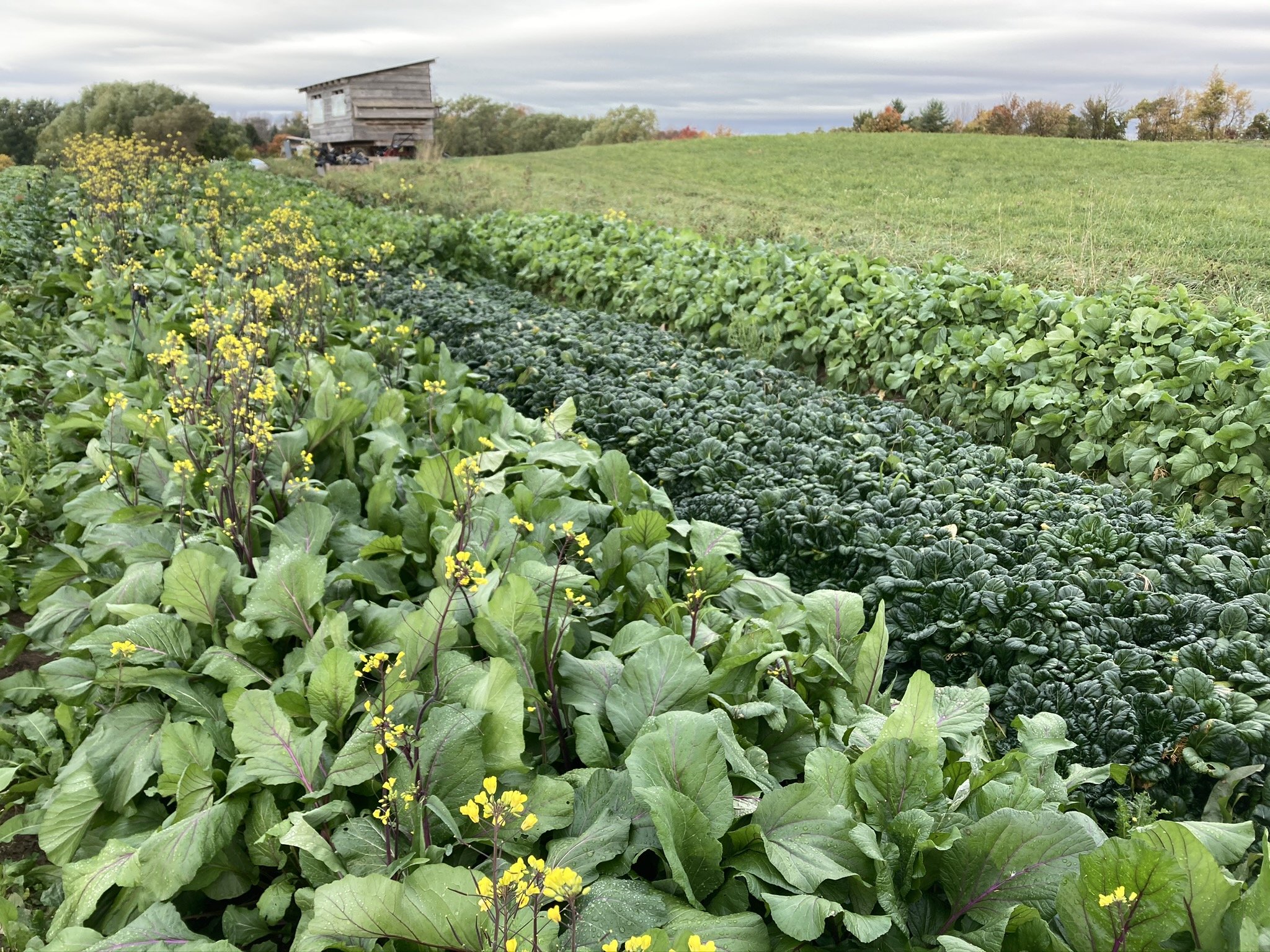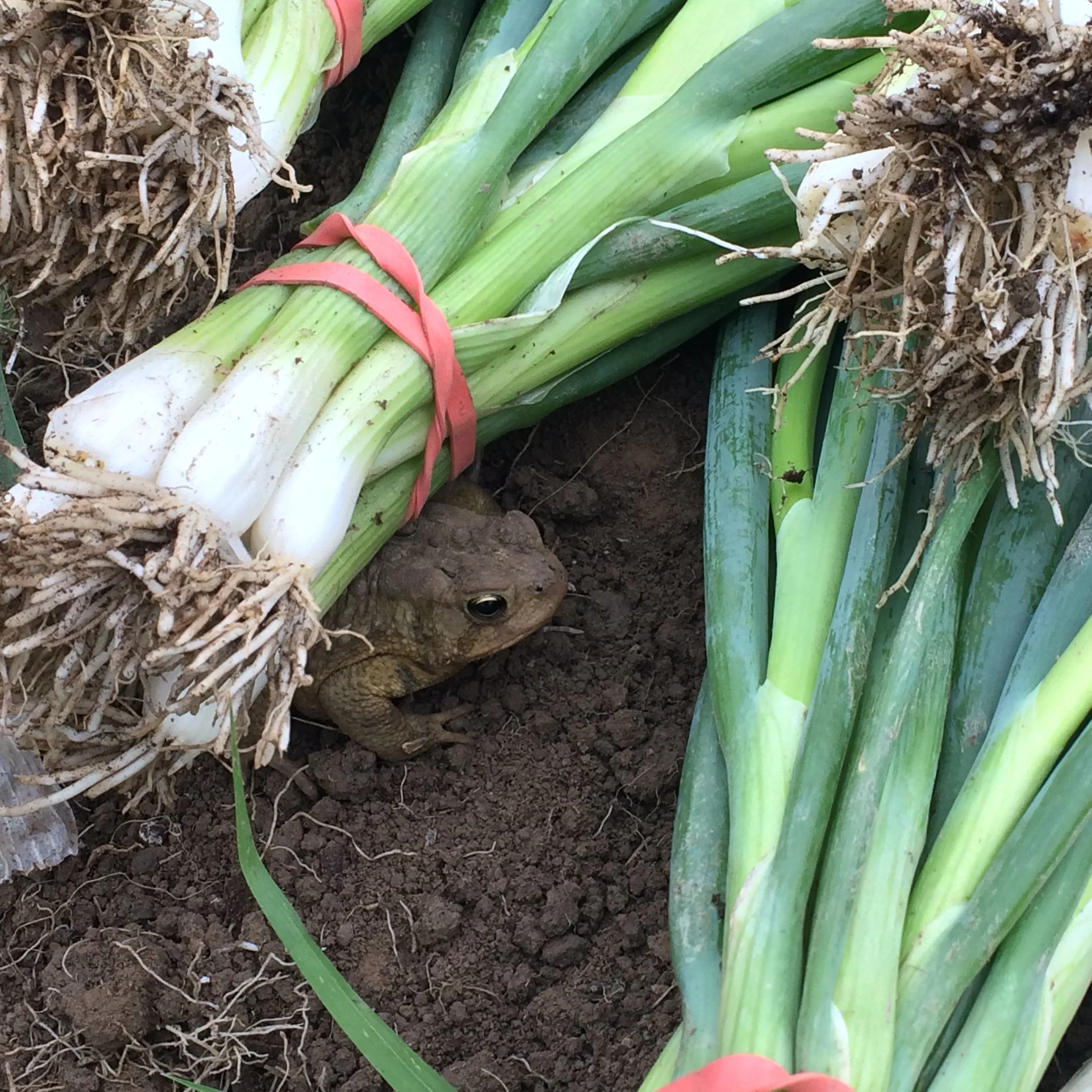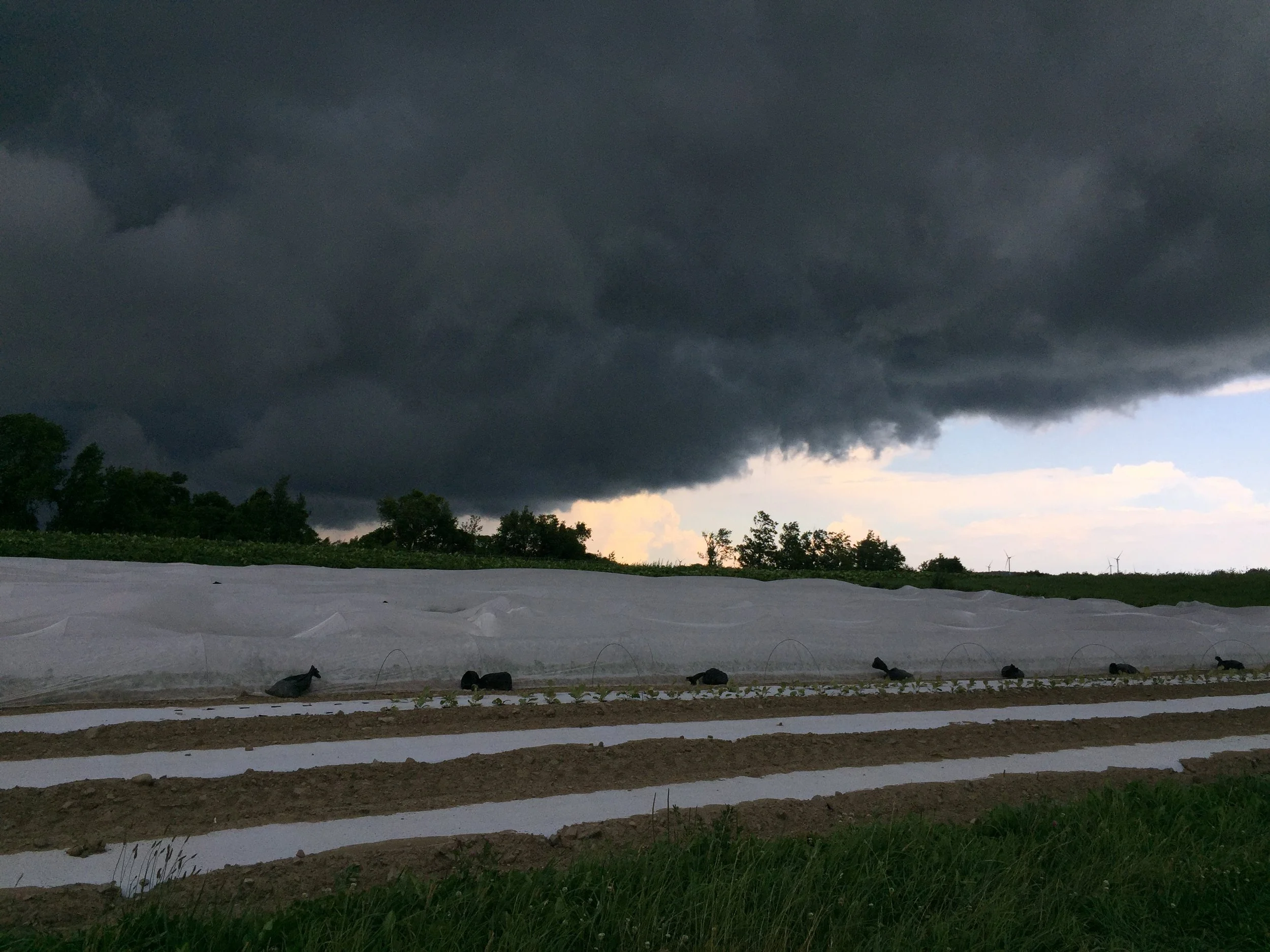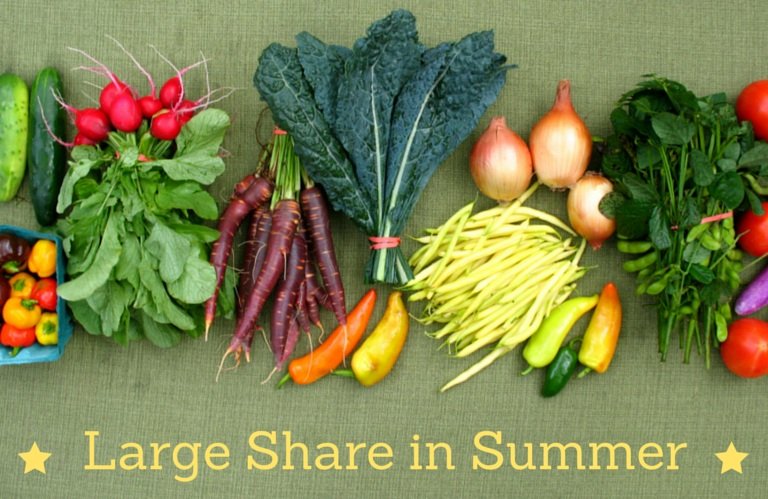On Farm Systems and Being Prepared (but Anti-Prepper)
/I ran into a neighbor last week who said to me, “Oh, you must be excited about this year and how good it’s going to be for you with food prices rising for once.”
I know they meant well, and I might complain up a storm as a grumpy old farmer about how food prices haven’t kept up with the cost to produce them over the past decades (and this was BEFORE this past year’s craziness), but the rising food prices are actually much more terrifying to farmers than they are to customers.
The problem is, all us farmers—even us little “resilient” and “adaptable” ones (more next week on my anti-resilience stance!)—have committed to some sort of growing system. Through experience and trials and education, each farm figures out what they can grow and how they can grow it at a price that’s both affordable enough for customers and profitable enough for covering farm operation costs.
Once you find that sweet spot, then it’s time to invest in it and commit to making it work better. Those commitments could include a particular set of tractors and implements, or certain field layouts or greenhouses or barns or market delivery systems and so on. But regardless of what you grow, those commitments cost time and money and trap you into your chosen system.
Height of nimbleness? Our movable tool shed…
We are a small, nimble farm that can make relatively abrupt changes among our diversified mix of about fifty crops. In a crisis, we theoretically could switch and grow all carrots or all potatoes (or substitute whatever higher calorie crop you want here). But we aren’t set up to grow our entire 40 acres of tillable fields in carrots or potatoes. We simply don’t have the equipment, storage and harvest capacity, labor, seed access, materials, and so on. It would take a couple years and likely a million bucks to make that change.
There’s talk about food prices feeling insane, but less folks are seeing the double and triple rising of other supply costs for farms. Even if prices rise 10%, it doesn’t alleviate a 30 or 50 or 90% cost increase on supplies. We ordered the bulk of our supplies last year, before the current war, and aren’t facing a fraction of the trouble larger farms that are now sourcing their increasingly tight fertilizer or herbicide supplies. Even if big farmers get the highest commodity grain prices in ages, their input costs might turn their growing season into a financial train wreck.
Coming back to the idea of farming systems, as organic farmers we do an insane amount of management around weeds. We literally are managing fields this year for weed reduction in 2024. Putting aside any judgment about farming systems, the majority of ag in the United States manages weeds through herbicides. Likewise, the majority of farmland in the US relies on artificial fertilizers. Most calories the animals we eat are fed and the calories that fill our grocery store shelves, for better or worse, come from systems with high dependence and investment in cheap fertilizer and herbicides (not to mention fuel!). And fertilizer and herbicides are items that anecdotally I’m hearing farmers say they’re struggling to get.
I prefer organic farming (obviously), but setting up an organic farm system honestly sucks. It’s a multi-year commitment to dealing with hassles, frustrations, lost crops, and messy looking fields, not to mention negative cash flow. Yes, you can do it and come out the far end with a better operation and system, but suddenly being an organic farm (or even just not relying on artificial fertilizer or herbicides/pesticides for a year) is not something a 1000 acre grain farm or 500 cow dairy can do on the spot.
We had twenty years of experience in organic agriculture and it still took us five years to conceive of the system to best manage our land’s weeds alone, five years to implement that system, and it’s going to take us another five years to completely master that system. I’m not saying this all to be scary, but more to share that it’s a less certain time to be a farmer than one might anticipate, and that even resilient farms are likely going to struggle.
We have parts of nature hiding everywhere on the farm
What does freak me out is that as a society, we have a very thin grasp on how interconnected and precariously balanced our world is.
These past weeks the internet is full of talks on energy and food independence, including growing your own food and being prepared. Parts of ag internet are full of stories of the Ukrainian farmers not in active war zones trying to get their fields ready to plant, because their country in particular desperately needs that food (talk about horrific uncertainty at the start of a growing season!!!)
And more than one friend or relative has joked with me about how they never worry about prepping, because they’ll just come to the farm and survive with us.
I feel like I have to let you all in on a secret.
Matt and I probably do have the skills and supplies on hand to live off in some post-apocalyptic dystopian future. However, we are both 100% sure that if shit hits the fan we will die. And we are 1000% percent anti-capital-P Prepping. I don’t mean that we’re not prepared to deal with a three-week power outage or a minor supply disruption in farm equipment getting to us, or even a batshit crazy growing season or two.
But when we say we are anti-prepping, it’s because we are acknowledging our intense interconnectedness with our neighbors, our region, our country, and our world. We as a nation and species committed to this “growing” system we have (which I would argue is far from perfect and needs to be improved). But despite needing upgrades, our society would not be an easy or pleasant or cheap thing to go around and quickly change.
Contemplating how we could each prep and survive on an individual farm or single homestead situation is an exercise in pointlessness. In a real crisis, sure, our farm could probably produce food for 10 to 50 households for a year but that would require half the people in those households to work brutally physically hard all the time on it (no fuel, remember), while the other half of the people would need endless amount of ammo to fight off everyone else that’s also just looking to survive.
Prepping feels like an particularly dick move if it involves planning to shoot the hungry grandma down the road who just wants to snag a few carrots for her grandkids!
It’s pointless to prep and plan in a vacuum. And anyone who thinks they can survive and live a life that has any joy in their own little bunker/farm, more power to you but I’d rather go down with the ship.
Of all these crazy Covid years, this winter is particularly hammering home our lesson of how fragile the connections that support us are. From our seeds (grown in desert regions around the world), our supplies (some still indefinitely sitting on a ship stuck “in US territorial waters”), our weather (some of us with no water and others with way too much, stretching all our farm systems at the seams), and our markets (as customers worry about the same instability and costs we do, and buy more shelf stable foods), we feel more like prey caught in a intricate, indissolvable web than that mythical “independent yeoman farmer” of American imagery.
And so we do think about preparation, but it’s only in that bigger context of how we can make food work for our region when things pull tight, rather than just for one isolated farm or family. How can we create shorter supply chains, both to and from the farm? How can we build systems that provide more on-farm soil fertility and weed control? How can we make our local food (and CSA shares) more accessible and easy to use?
My goal is for us to not all become fossils!

